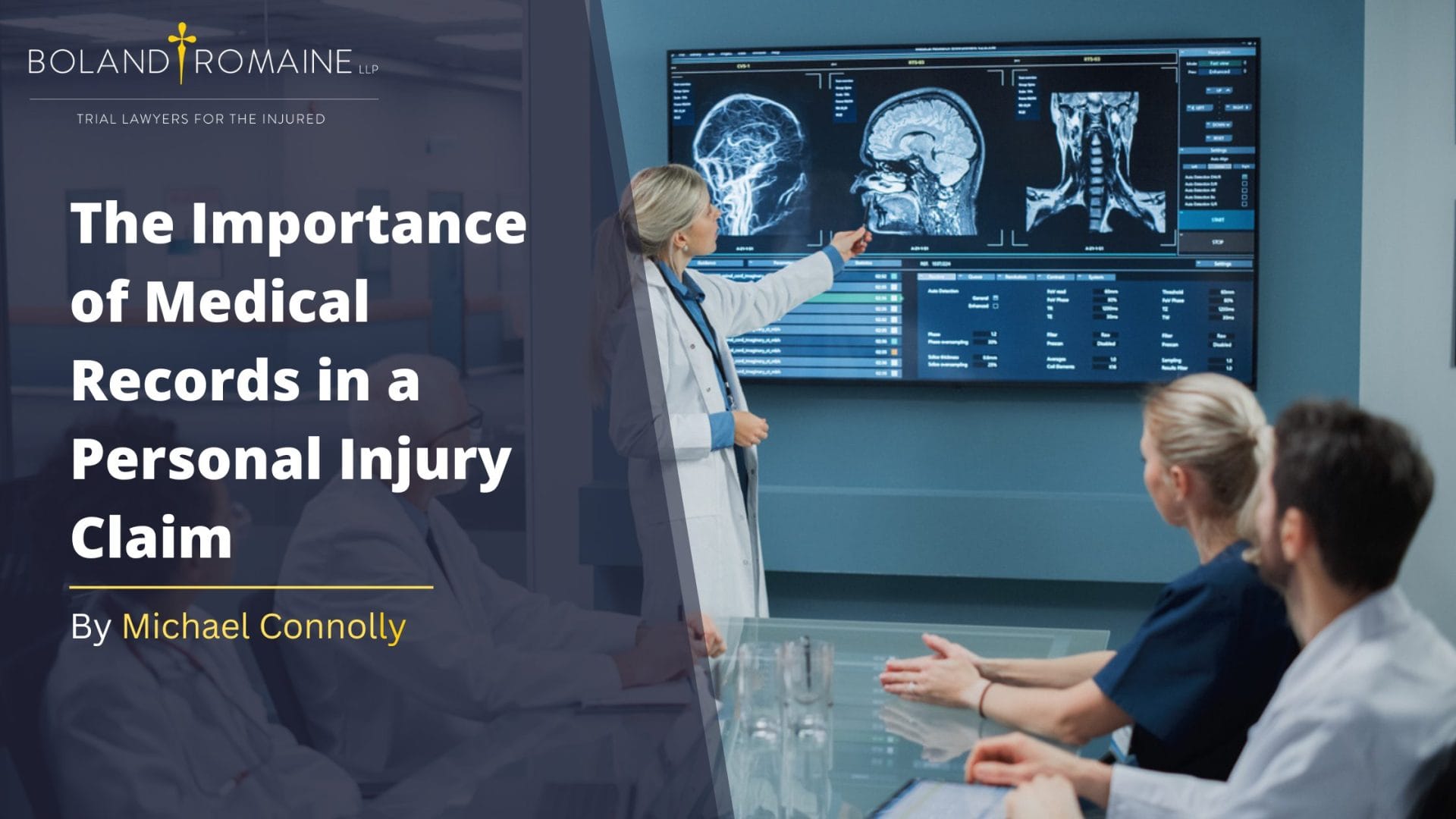The Importance of Medical Records in a Personal Injury Claim
- 22.11.2024
- Insights

The Foundation of a Personal Injury Claim
In the realm of personal injury claims, medical records hold a place of unparalleled significance. They serve as the foundation of any case, providing detailed documentation of injuries, treatments, and the overall impact of the incident on the claimant’s life. In Ontario, where personal injury claims are rigorously scrutinized, the strength of these records can determine the success or failure of a case.
Establishing the Narrative of Injury
Medical records are essential because they offer concrete evidence that substantiates the claims made by an injured party. From the moment an injury occurs, every interaction with healthcare professionals becomes part of the narrative. Emergency room visits, diagnostic tests, specialist consultations, rehabilitation sessions, and prescriptions all contribute to a comprehensive picture of the injury’s severity and its impact on the individual. This documentation not only corroborates the claimant’s story but also provides a timeline that links the injuries directly to the incident in question.
In many cases, the clarity and detail of medical records are crucial in establishing causation. For example, in a motor vehicle accident claim, the medical documentation must clearly demonstrate that the injuries sustained were a direct result of the collision. Without this link, insurance companies and opposing parties may argue that the injuries were pre-existing or caused by an unrelated event. A well-documented medical history can preempt such challenges, showing that the claimant’s condition was directly influenced by the accident.
Assessing Severity and Long-term Implications
Moreover, medical records are instrumental in assessing the severity of injuries and their long-term implications. Notes from physicians, diagnostic imaging results, and rehabilitation progress reports allow evaluators to understand the extent of the harm caused. They reveal whether the injuries are temporary or permanent, whether they will require ongoing treatment, and how they affect the claimant’s ability to work or engage in daily activities. This information is critical for calculating fair compensation, which may include not only immediate medical expenses but also future costs for care and lost earning capacity.
Justifying Financial Compensation
The financial aspect of personal injury claims also hinges on accurate medical documentation. Treatment plans, invoices, and receipts for medications or therapies provide a clear record of the financial burden incurred due to the injuries. These records form the basis for claiming compensation for medical expenses, as well as for non-economic damages such as pain and suffering. When medical records are thorough and precise, they strengthen the case for full and fair compensation.
Enhancing Credibility and Addressing Challenges
However, the role of medical records extends beyond simply documenting injuries and costs. They can also influence the credibility of a claimant. Discrepancies or omissions in medical records may be exploited by opposing parties to cast doubt on the legitimacy of the injuries. For instance, gaps in treatment or inconsistent accounts of pain levels can weaken a claim. Therefore, it is essential for claimants to follow through on all recommended treatments and to communicate openly with their healthcare providers about their symptoms and progress.
Claimants must also be aware of the potential challenges related to privacy and access to medical records. While these records are critical for substantiating a claim, they can also be scrutinized by insurance companies and defense teams. It is not uncommon for opposing parties to request access to a claimant’s full medical history in an attempt to find pre-existing conditions or other factors that could diminish the claim’s value. For this reason, working with a knowledgeable personal injury lawyer is crucial. A lawyer can ensure that only relevant medical records are disclosed, protecting the claimant’s privacy while still providing the necessary evidence to support the case.
Personal Injury Lawyer
In conclusion, medical records are the backbone of any personal injury claim. They provide the evidence needed to establish causation, assess the severity of injuries, and justify financial compensation. Their accuracy and thoroughness can significantly impact the outcome of a case, making it essential for claimants to prioritize proper documentation and adhere to their treatment plans. In a legal landscape where every detail matters, well-maintained medical records are not just a tool but a necessity for securing justice and fair compensation.




